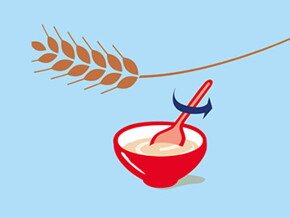
Benefits Of Fruits And Vegetables
What Are Vegetables And Fruits Good For?
IMPORTANT NOTICE: The World Health Organization (WHO) recommends exclusive breastfeeding for the first 6 months and continued breastfeeding for as long as possible. Growing up milks are formulated to meet nutrition needs of healthy young children older than 1 year and should not be fed to infants.
Fruits and vegetables are an integral part of a child’s healthy, well-balanced diet, not only because they represent one of the major compacted food groups in the food guide pyramid, but also because they are power-packed foods, full of nutrients and benefits.
Let’s have a look at some the benefits of fruits and vegetables for kids:
- Fruits and veggies are cholesterol free. They are also low in calories, sodium and fat, making them efficient in managing a child’s weight and reducing his risk of obesity.
- Fruits and veggies are high in fibers, much needed to regulate blood cholesterol and reduce a child’s risk of developing digestive disorders and heart problems.
- Regular consumption of fruits can reduce a child’s risk of developing nutrient deficiencies, like potassium, calcium, magnesium, iron, vitamins C, A and B complex, whilst eating veggies on a regular basis and in the right form, can protect a child from different types of chronic diseases.
- The antioxidant content in veggies and fruits can boost a child’s immunity and support his body’s capacity to fight illnesses and infections.
- Fruits and veggies are healthy and beneficial in any form, whether fresh, frozen, canned or dried.
- High intake of veggies and fruits increase a child’s ability to focus and assimilate, which may reflect positively on the development of his cognitive skills.
- The high amount of folic acid in most vegetables and fruits can stimulate a child’s body to produce red blood cells.
Given all these valuable benefits, make sure to enrich your tot’s daily diet with a range of different fruits and vegetables; these healthy, nutritious choices are better alternatives to foods high in sugar, salt and unhealthy fats.
Read More: Feeding Disorder Of Early Childhood




















